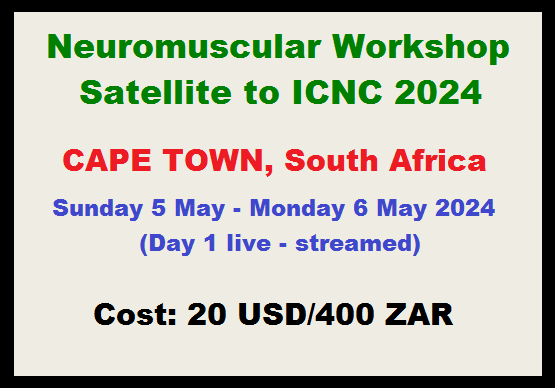
I believe the children are our future…
… but with one in four children stunted by malnutrition, what kind of future is that?
What kind of future do we want for the children of South Africa? Surely we all want to see our kids shine – to do well at academics or sport or whatever field in which their talent lies. To escape the poverty trap and live in comfort.
But for many children, these dreams will never, can never, come true. In May this year, the South African Medical Research Council noted that according to the South Africa Demographic and Health Survey (SADHS), 27% of our children shows signs of chronic malnourishment – stunting, which affects both the physical and mental development of children. If their nutritional status does not improve during their early years, they will suffer long-term consequences.
“For physiotherapists, whose whole focus is to work towards healthy, functional bodies, this is tragic. Children who are undernourished for a period of years will have less resilient bodies – for example, their bone density is likely to be below par,” says Dr Ina Diener, President of the South African Society of Physiotherapy. “This has a profound impact on their futures. A child with stunting is unlikely to be able to excel in sports, no matter what their natural talent may be, and they are very probably more vulnerable to injury than their peers.”
It also means that these children – a huge group, around five million under-18s – will find it that much harder to break out of the poverty trap.
When we celebrate Youth Day on 16 June, let’s ask ourselves: what can we do about youth malnourishment?
“It’s a massive problem, and can seem insurmountable,” says Dr Diener. “But there are things that ordinary people such as you and me can do to improve the picture.”
Things like:
• Help children play
“Research has shown us that exercise can help children recover from stunting and catch up in terms of growth – we know that exercise stimulates the production of growth hormones,” says Dr Diener. “In addition, weight-bearing exercise improves bone health and keeps muscle strong and flexible.”
But malnourishment encourages inactivity – unless there’s an incentive for physical play. Most of our children will be tempted to play if they are offered the space and equipment to do so. Simple little bits of equipment like soccer balls will get them running and jumping quickly. Jungle gyms are potent lures. Find a school serving disadvantaged children and ask what is needed to get kids running, climbing, jumping, kicking and scoring.
• Support NGOs who are helping feed children
Charity Begins With Me, for example, is a small group of volunteers who provide a meal (and some fun and games) every Sunday to 375 very poor children in the Durban Deep area (https://www.facebook.com/Charity-Begins-With-Me-844591245625986).
There are NGOs like Community Led Animal Welfare that hand out hundreds of food parcels to desperate locals, which provide basic sustenance in the form of staple foods. There are similar NGOs at work all across the country – commit to giving a little every month and change young lives.
• Fight food waste
In South Africa, we produce enough food to feed all our people. One of the reasons there is still hunger is because about a third of our food (10 million tons) is wasted. About half the waste happens during production, processing and packaging, the rest is occurring along the distribution chain, during storage and in our homes.
We should be doing far more to prevent food ending up in landfills. Find out what your local retail stores or greengrocers do with food that’s reaching its sell-by date, for example, and campaign for that food to end up in children’s tummies.
Support organisations like Food Forward, which redistributes surplus food to non-profits working with needy families. https://foodforwardsa.org/
• Help people get their papers in order
South Africa’s social grants system is one thing we can be proud of. It has helped families eat better, and research done at the University of the Western Cape shows clearly that in by far the majority of cases, childcare grants improve the nutrition of children.
But you can’t get a grant for your child if you don’t have an ID or birth certificate. Many of the very poor don’t get grants because they don’t have the resources to get these documents in order – but you and I, as middle class people, do. Talk to your local welfare NGO and find out how you can help.
• Challenge yourself to prevent food waste
Find out what food expiration dates really mean; for example, which will enable you to stop throwing food away when it’s not necessary. (This is a helpful chart: http://lifehacker.com/5987460/put-an-end-to-spoiled-wasted-food-with-this-handy-chart) Learn how to use imperfect food and leftovers effectively. (See this little video for help: http://www.popsci.com/can-you-eat-spotty-fruits-and-vegetables)
Pop 50c in a glass bottle every time you use something you would otherwise have thrown away, and donate your savings to a school-feeding project.







